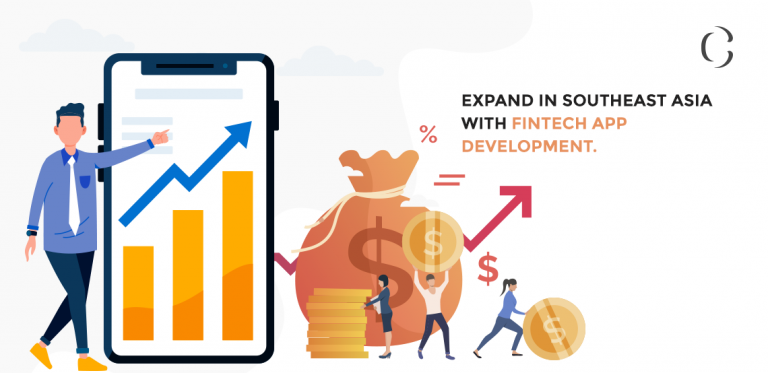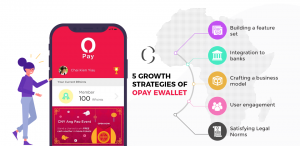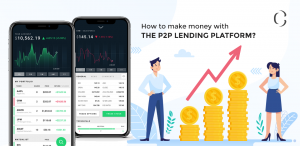Credit lending expansion in SouthEast Asia- Be the part of the rising

The analysts at the Robocash group have described inclinations around alternative lending in Southeast Asia in the prevailing year. There has been a steady rise in the number and territorial expansion of local players. The expansion is based on the experience of the increased regulation and a particular focus on the financial inclusion of MSMEs and the development of regional cross-border markets which have become the most notable of the recent trends.
In the year 2019. the local and international fintech companies have been actively ascending in the region. The most notable pointers of the drift are the recognition of alternative lending in South East Asia from local non-financial businesses. To improve the customer experience, many growing technology companies like Grab and Go-Jek have begun implementing lending and micro-insurance services. This has demonstrated the high potential that arises from the financial inclusion of people, micro, small and medium enterprises (MSMEs) staying without admittance to banks.
Also, partly aided by the visible tightening of the management of P2P lending in China, an improvement in the number of opponents has made governments in Southeast Asia pay closer heed to alternative lending.
In the initial situation, it involves heightened surveillance under the sector. To quote as an example, the Investment Alert Task Force notified about 133 illegal P2P lending companies in Indonesia. There are many other countries that are catching up with the pilot schemes e.g. Vietnam.
However, looking at the benefits of fintech, countries are also trying to support it. One of the points of attention is the low access to funds for SMEs. In Malaysia, 55% of SMEs can connect to banks however, the Securities Commission assists local companies to analyze both traditional and alternative financing opportunities. Indonesia and the Philippines have a higher number of small firms than any of their neighbors do, but only 40% of the firms are able to access bank lending.
Kredivo’s parent firm FinAccel raises $90M and is expanding its credit lendings in SouthEast Asia
FinAccel has raised $90 million in its largest funding rounds in Southeast Asia. The company is headquartered in Singapore. It is looking forward to expanding its credit lending app Kredivo and create more financial services. The funding round was led by Asia Growth Fund and it was a joint venture between Mirae Asset and Naver — and Square Peg.
FinAccel has generated more than $200 million in debt and equity in the current year only. The company has raised more than $140 million in equity until now. FinAccel runs the credit lending app called Kredivo in Indonesia. There they have amassed more than a million customers and is growing by a whopping 300% each year.
The app permits customers to obtain credit between $100 and $2,200. The company doesn’t charge any fee if a customer pays back full in just a month’s time. If not, the app levies an interest rate of 2.95%.
Kredivo app’s payment option is also integrated with different e-commerce platforms. Those include Lazada and Shoppe, and food delivery startups in Indonesia. The users can avail of the credits quickly to buy things and pay the app after some time.
The P2P lending apps are frequently winning popularity beyond the globe, but particularly in Southeast Asian markets. The infiltration of credit cards remains low. So, there are very fewer individuals with a conventional credit score. This has generated an opening for startups to view additional metrics to decide who should get a loan.
P2P lendings in Southeast Asia
The tide of peer to peer lending has seen a striking success beyond the US and Europe. It has yet to get into various other markets. Nevertheless, it declared on the models of companies that created an online business lending market worth a predicted $230 billion in 2015, the new startups are ready to change that.
Garg told TechCrunch that the Kredivo app views a range of data points which include the smartphone models that the customers are using and also the kind of apps installed in it. They are basically creating a user profile using the mixture of different data signals that come from present credit bureaus, the telcos, the e-commerce accounts, the bank accounts and the users themselves.
The complete data creates a 360-degree overview of the customer which in turn helps in ascertaining the risk factors and determining whether to issue the credit. Until now, Kredivo has approved only about one-third of the total applications it has received.
The managing director of Mirae Asset Capital, Jikwang Chung who is also the strategic investment arm of Mirae Asset, declared that FinAccel is one of the topmost companies in Southeast Asia that is able to blend a powerful technology DNA with top-tier risk management and a strong concept of financial inclusion.
FinAccel also works with banks to fund the credit to customers. The company has assessed more than 3 million applications to date and dispensed nearly 30 million loans. The startup is now planning to provide more monetary services, such as low-interest education and healthcare loans.
In the coming three to four years, it intends to tend to 10 million users and grow to different Southeast Asian markets like the Philippines, Thailand, and Vietnam.
There are other few startups operating in the same space as FinAccel in Indonesia. The company named C88 which also lends credits to customers has generated $28 million in a funding round led by Experian last year.
To decrease the gap between traditional and alternative financing the Financial Services Authority of Indonesia (OJK) proposed P2P lending organizations to allocate 20% of their total credit to MSMEs.Till August 2019, 60% of all P2P lending borrowers were reported to be from the SME division. Such a thorough background blended with other several factors, like high Internet invasion, has significantly stimulated the increase of digital lending in Southeast Asia.
Google & Temasek have lately projected that the territory’s loan accounts will improve two-to threefold reaching $110 billion by the year 2025. Also, SEA has begun building an undivided cross-border ecosystem.
The collaboration of nations within specific structures like the Asia-Pacific Fintech Network and the pan-Asian Fintech Cooperation Committee will definitely boost the market to encourage further the status of the region on the fintech view.
Planning to develop a FinTech app like Kredivo? Know our most affordable FinTech app development solution.
If you are interested to expand your fintech services in Southeast Asia, we can help you out with our amazing fintech app development solutions. Connect with us to discuss the requirements and cost of the app to grow your business in the new region.









